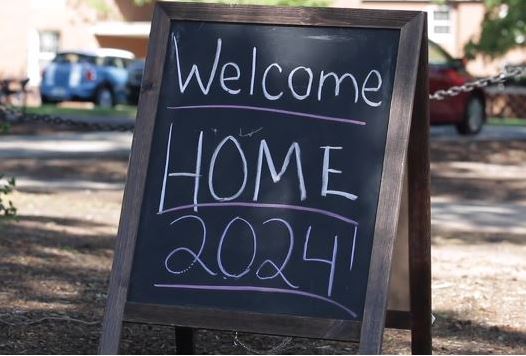Freshmen, your extended orientation is over. We are currently approaching the end of the first six-weeks of school. It is a period that Furman administrators and higher-ed pundits alike have determined to be a crucial time that can make or break first-year students’ college experience.
Freshmen receive so much focus from Orientation Staff, Resident Assistants, Advisors and others in the first six weeks of the fall, because educators’ fear that if students are not quickly and thoroughly integrated into college life, they will struggle. They will not be able to make friends, find their place and lead lives of purpose for the next four years. Or worse, they might transfer.
This is an irrational, counterproductive and self-fulfilling fear.
It is irrational because it is based on the assumption that discomfort is bad. When making a serious transition from your parents’ house to your campus dorm room, being uncomfortable should be expected. In fact, it is a necessary good. Now, that is not to say that students should make that transition without support, but the notion that eighteen-year old’s need to leave the nest of their parents’ house only to land in a new, slightly bigger nest at school seems ridiculous.
The “first six-weeks” concept is counterproductive, because it has led to overwhelming orientations that leave students feeling exhausted and anxious. Far too often, students come away from o-week with the understanding that they need to hurry up and figure out who they are and who they want to be on campus.
Freshmen cannot possibly answer this question so soon. As someone who arrived in a brand-new place less than six-weeks ago, you certainly should not know exactly who you are or who you want to be. You are in a period of transition. You are beginning a marathon that you will run for the next four years. Why would you start with a sprint?
Nonetheless, plenty of Furman’s most prestigious student organizations are waiting, arms open wide, to take advantage of those flustered freshmen with rushed and rigorous application processes that immediately and artificially sift out the “leaders” from the rest. In doing so, they reveal their true, albeit unspoken, raison d’etre. They are, for the most part, social clubs masquerading as student organizations. Though they may claim some greater purpose, most students who have been on campus for more than six-weeks quickly realize that the fun events and fancy retreats are little more than window-dressing for a select group of students to boost their resumes and social clout. Otherwise, why would these organizations recruit students so early each fall? If they had compelling organizational missions, would it not make more sense for them to wait longer and let first-year students judge them on their merits? Even the Greek life organizations have delayed rush!
This brings me to the most insidious aspect of this concept and its consequences. It is a self-fulfilling prophecy. Six-weeks is not some magic number; it is when the gauntlet of orientation sessions, weekly hall events and rushed application processes subsides. If students feel unsettled after six weeks on campus, it is because of—not in spite of—a system that tells them that if they do not know exactly who they are, then they must be lost.
To the class of 2024, I know that this was not the college experience you expected or wanted. And to be sure, this is not what college is or should be like. However, this is the experience before you, and you ought to make the most of it. To be fair, it is not all bad. The same factors that have inhibited your ability to connect with the campus community have also prevented these first six-weeks from being quite so busy and overbearing.
Unlike any class before, you have the chance to challenge the norms of what the college experience has traditionally been, because COVID-19 has kept so much of that traditional experience from being foisted upon you. It has interrupted the institutional inertia that keeps college campuses from changing.
So, do not despair because you have been at school for six-weeks and have not quite found your place yet. Take the time to survey your campus, see student organizations and other groups for what they really are—not what they advertise themselves to be—and reflect on what you think your institution could be doing better.
Then, be the change you wish to see.









































